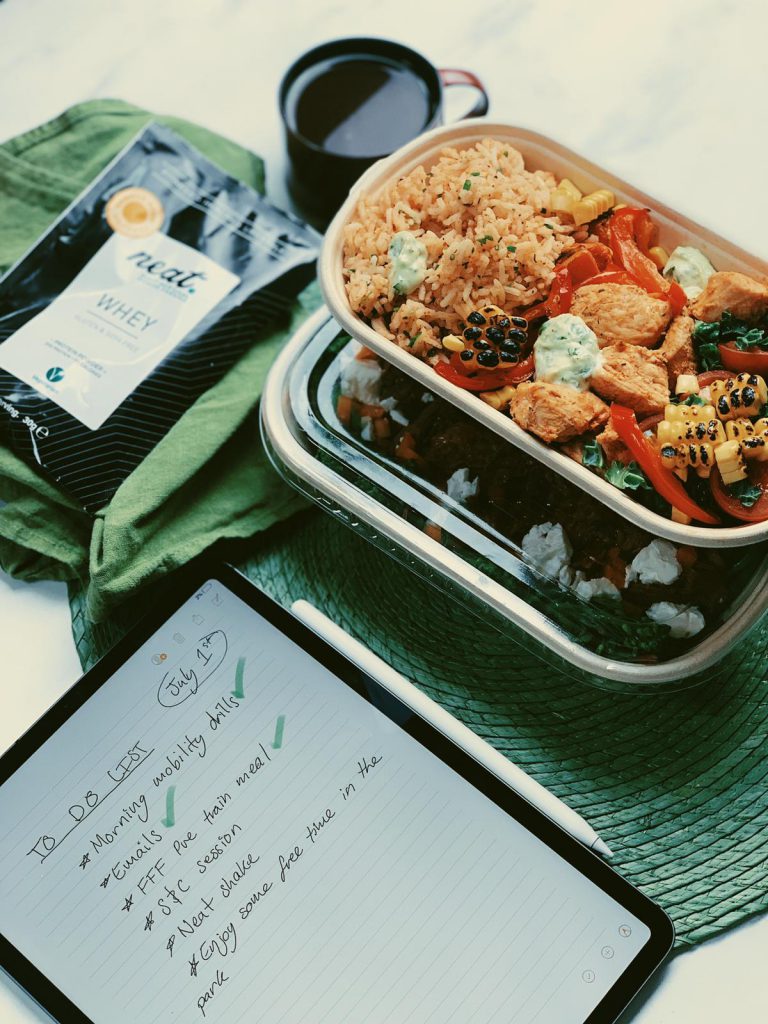

TOP TIPS FOR A FRESH CHRISTMAS
Dazzling light displays, Christmas jingles ringing through busy shops, not to mention good food and great company. Wonderful signs the holiday season is upon us! While your evenings are filled with festivities, mulled wine and Christmas treats its easy to get swept up in all that Christmas cheer and lose sight of your health and wellness goals, forgetting how hard you’ve worked to reach this point, and how difficult it is to get yourself back on track in the New Year. Well not this year! Try these tips and tricks to lighten the load a little:
Be realistic with your goals
After work drinks, catch ups with friends, family parties and shopping duties all impinge on the time you may usually have for cooking meals and exercising. Be aware that you may not be doing the same amount of exercise and adjust your intake accordingly.
Don’t limit yourself during the day to indulge at night
Cutting back on daytime meals encourages you to go overboard in the evening. It is also easier to make poorer food choices when you are starving, which is why they say ‘never to go food shopping on an empty stomach’.
Be wary of canapes and ‘mini food’
While they may look cute and appetising, it is difficult to estimate the nutritional value of these. Although tiny portions, they are traditionally very high in calorie density and can easily add up to more calories than a meal. Try to stick to your regular meal timings and routine as much as possible to avoid showing up to events/parties hungry.
Practice mindful eating
Mindfulness is a technique that is gaining a lot of traction recently and can be applied to all facets of your life, especially eating. While you may be rushing around trying to get all your tasks done the temptation to eat on-the-go increases. The issue with this is that you are more likely to overeat if eating while distracted, and may not recognise the signals that you are full. Try to take a moment to eat your meals without distraction, this includes; electronics, work and errands.
While your evenings may be busier, it’s important not to compromise your sleep
Both quality and quantity! Sleep duration is directly associated with leptin, a hormone produced by fat cells, which signals satiety to the brain and reduces appetite. Restricted sleep decreases the production of leptin, leading to an increase in appetite despite no change in routine when awake. Research has shown those who get between 6-8 hours of sleep a night are more likely to see results in terms of weight loss and muscle gain as well as the improving mood and cognitive ability.
Too late for the above? If you find you have over-indulged already, don’t worry it’s not too late to get back on track.
Restoring your digestion after a blow-out is vital, and will help flush out toxins in your body. Be sure to include a variety of soluble fibre sources, such as oats, chia seeds and berries, as well as insoluble sources such as green leafy vegetables and brown rice. The latter is especially important in keeping your bowel active and removing the nasties. Note that it is also essential to keep up the H20 when eating fibre-rich foods.
Don’t skip meals the next day to make up for the calories consumed the night before. Although this may seem like it balances out, this deprives the body of nutrients when it needs them most. Equally important not to feel like all is lost, and indulge in classic calorie dense hangover foods. The body needs to be re-fuelled with nutrient dense food to detox the system, get back on track quickly by eating lean meats, whole foods and drinking plenty of water!